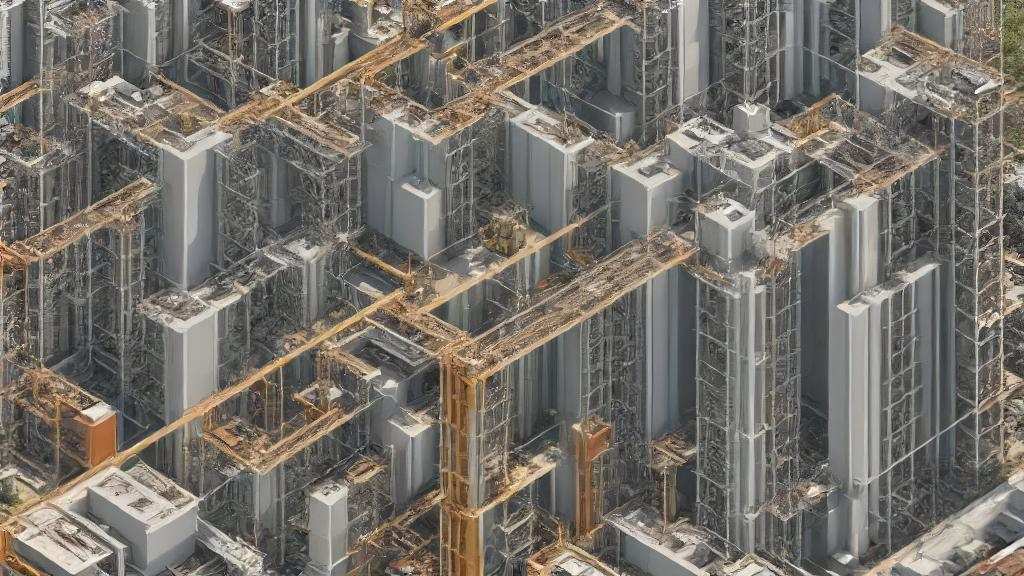The Future of Building Construction: Innovations and Trends Shaping the Industry

Building construction has always been a dynamic field, constantly evolving with advancements in technology, materials, and practices. In today’s rapidly changing world, the construction industry is embracing innovative solutions to meet the demands of sustainability, efficiency, and modern design. Here are ten key points highlighting the exciting trends and developments in building construction:
- Innovative Materials: The choice of materials plays a crucial role in the durability and sustainability of buildings. Recent advancements have introduced materials such as recycled steel, cross-laminated timber (CLT), and self-healing concrete. These materials not only enhance the structural integrity of buildings but also reduce environmental impact. Recycled steel minimizes waste, CLT offers a sustainable alternative to traditional lumber, and self-healing concrete extends the lifespan of structures by repairing cracks automatically.
- Sustainable Practices: The push for eco-friendly construction practices has never been stronger. Green building certifications like LEED (Leadership in Energy and Environmental Design) and BREEAM (Building Research Establishment Environmental Assessment Method) are setting high standards for sustainability. Energy-efficient designs, such as passive solar heating and natural ventilation, are becoming standard practices. Additionally, the integration of renewable energy sources like solar panels and wind turbines is helping buildings achieve net-zero energy consumption.
- Modern Architectural Design: Contemporary architectural trends are reshaping the way buildings look and function. Open floor plans that encourage collaboration and flexibility are becoming popular in both residential and commercial spaces. Minimalist design, characterized by clean lines and simple forms, is also in vogue. Moreover, the incorporation of natural light and green spaces not only enhances aesthetic appeal but also promotes well-being among occupants.
- Smart Technology Integration: The rise of smart technology is revolutionizing building construction. Smart homes equipped with IoT (Internet of Things) devices can monitor and control various systems, such as lighting, heating, and security, improving energy efficiency and convenience. Automation in construction processes, including the use of robots for tasks like bricklaying and concrete pouring, is increasing productivity and precision.
- Cost-Effective Solutions: Managing construction costs is crucial for the success of any project. Prefabrication and modular construction are gaining traction as cost-effective solutions. These methods involve assembling building components off-site in a controlled environment, reducing labor costs and construction time. Efficient project management techniques, such as Building Information Modeling (BIM), also help in optimizing resources and minimizing waste.
- Safety and Compliance: Ensuring the safety of construction sites and compliance with regulations is paramount. Adhering to building codes and safety standards not only protects workers but also guarantees the longevity of the structures. The adoption of advanced safety technologies, like wearable devices that monitor workers’ health and safety in real-time, is enhancing the overall safety culture in the construction industry.
- Innovative Construction Techniques: Cutting-edge construction methods are transforming the way buildings are constructed. 3D printing, for instance, allows for the creation of complex architectural elements with precision and speed. Robotic construction is automating labor-intensive tasks, reducing human error, and increasing efficiency. The use of drones for site surveys and inspections provides accurate data and improves project management.
- Project Management Excellence: Effective project management is critical for the successful completion of construction projects. Best practices include meticulous timeline management, realistic budgeting, thorough risk assessment, and seamless collaboration with stakeholders. Advanced project management software helps in tracking progress, managing resources, and ensuring timely delivery.
- Community and Environmental Impact: Construction projects significantly impact the community and environment. It is essential to consider these factors during the planning and execution phases. Promoting community engagement through public consultations and incorporating feedback can lead to more inclusive and accepted projects. Minimizing the ecological footprint by using sustainable materials and practices is also a key consideration for responsible construction.
- Future Trends in Construction: The construction industry is constantly evolving, with new trends emerging on the horizon. Sustainable urban development focuses on creating resilient and adaptable cities that can withstand environmental challenges. Adaptive reuse of buildings involves repurposing old structures for new uses, preserving historical significance while meeting modern needs. The growing role of AI (Artificial Intelligence) and machine learning in construction planning and execution is set to revolutionize the industry by improving efficiency and reducing costs.
In conclusion, the future of building construction is bright, with innovations and trends that promise to make the industry more sustainable, efficient, and adaptive. By embracing these advancements, construction professionals can deliver projects that not only meet current demands but also contribute to a better, more sustainable future.
